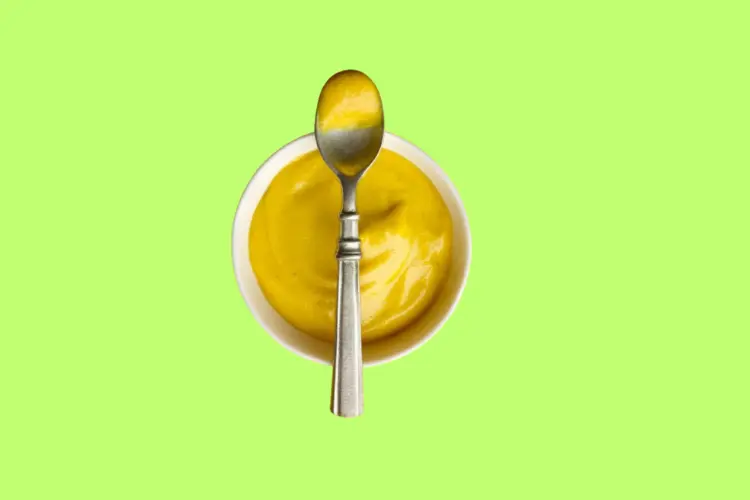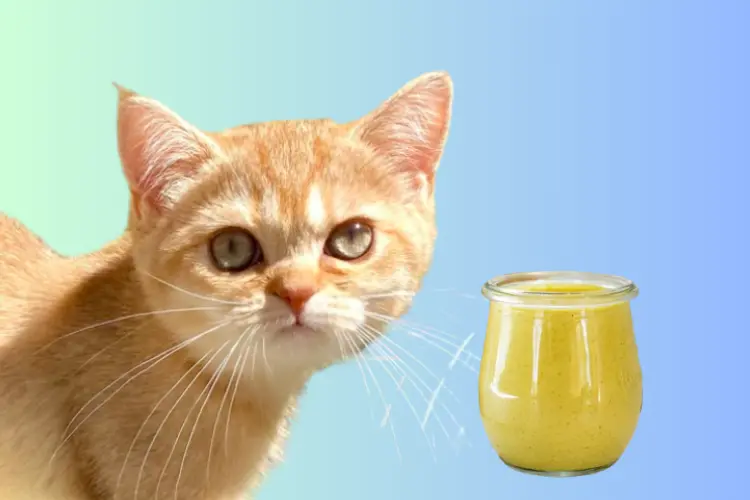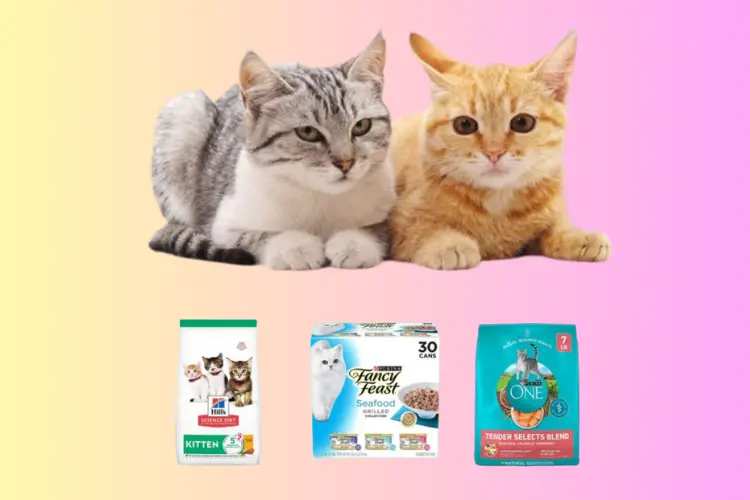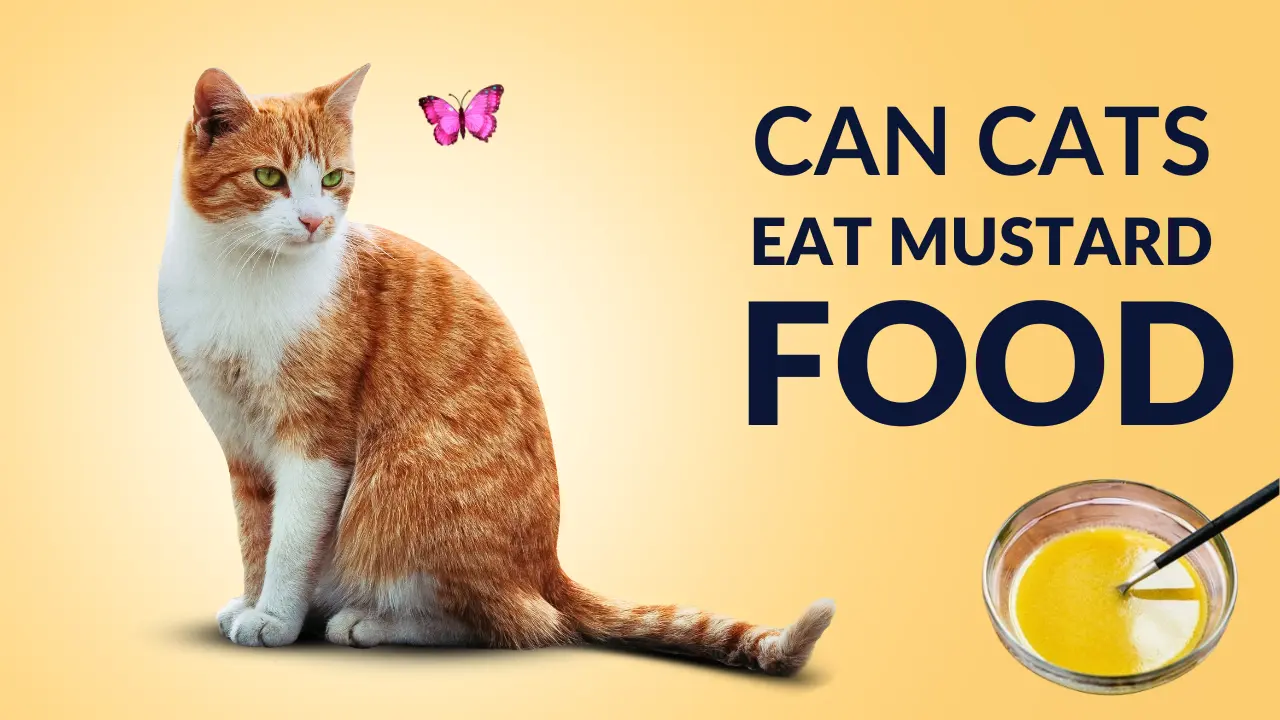Can Cats Eat Mustard? Exploring the Safety of Your Feline Friend
Cats are known for their curious nature, constantly exploring their surroundings and occasionally showing an interest in human food.
As a responsible cat owner, knowing which foods are safe for your feline friend and which should be strictly off-limits is essential.
In this article, we will explore mustard and its compatibility with a cat’s digestive system. Let’s settle the question once and for all: Can cats eat mustard?
Can Cats Eat Mustard?
Mustard, commonly found in various culinary recipes, is an iconic condiment many humans enjoy. However, it is essential to recognize that cats have dietary needs and digestive systems separate from humans.
Before deciding whether cats can safely consume mustard, let’s look at what mustard is made of and the potential risks it may pose to our feline buddies.
Mustard typically contains crushed seeds, vinegar, water, salt, and spices or flavorings.
While mustard seeds are not toxic to cats, the other ingredients in commercial preparations can be problematic for feline consumption.

Is Mustard Bad OR Toxic for Cats?
While it is not inherently toxic to cats, it is generally not recommended for feline consumption. It may not be suitable for your furry friend for several reasons.
One primary concern is the high sodium content found in many mustard varieties. Consuming foods high in sodium may lead to issues such as dehydration, electrolyte imbalances, and even aggravate conditions like high blood pressure or kidney disease in cats.
Also, certain spices or flavorings used in mustard recipes, such as onion powder or garlic, can be toxic to cats. These ingredients can cause gastrointestinal irritation, anemia, or even damage to their red blood cells.
Considering these potential risks, avoiding feeding your cat directly to ensure their well-being is best.
Related: Can Cats Eat Graham Crackers

Cats and Mustard: A Closer Look
While cats may show curiosity towards unusual smells and flavors, the chances of them willingly consuming mustard are relatively low. The firm, pungent odor alone may be a natural deterrent for cats.
Cats possess a highly refined sense of smell, and the potent scent of mustard can overwhelm their senses. In most cases, if a cat detects a strong odor they find unappealing, they will likely avoid it altogether.
However, each cat is unique, and their reactions to various scents can differ. Some cats may be more interested due to individual preferences, dietary habits, or curiosity.
Therefore, taking precautionary measures to prevent accidental consumption and ensure your cat’s safety and well-being is crucial.
Related: Can Cats Eat Bologna?

Alternative Options for Your Cat
Instead of tempting fate by introducing it to your cat’s diet, exploring alternative options that are safe and healthy for your feline companion is advisable. Consider these wholesome alternatives that can provide similar flavors or textures to mustard:
- High-quality Cat Food: Opt for complete and balanced cat food that meets your cat’s nutritional requirements. Look for options that offer a variety of flavors and textures to keep your cat engaged during mealtime.
- Cat-friendly Meat Treats: To enhance your cat’s mealtime experience, consider offering them small, feline-friendly meat treats as an occasional indulgence. These treats are formulated specifically for cats and provide a safe way to provide them with extra flavors.
- Homemade Cat Food: If you prefer a more hands-on approach, you can prepare homemade cat food using veterinarian-approved recipes. This ensures your cat receives a balanced diet while avoiding potential risks associated with human nutrition.
Remember, the primary focus should always be on your cat’s well-being, and providing them with a nutrient-rich and feline-appropriate diet is essential for their overall health.
Related: 9 Beautiful Black Smoke Cat Breeds

Tips for Preventing Mustard Consumption
To ensure the health and safety of your curious cat, it is crucial to take preventive measures and safeguard them from accidentally ingesting mustard. Consider the following tips to minimize the chances of mustard consumption:
- Store Safely: Keep all spices, including mustard, securely stored in designated cabinets or refrigerator compartments inaccessible to your cat. This reduces the risk of accidental ingestion.
- Monitor Meal Preparation: Be vigilant when preparing mustard meals or snacks. Cats are naturally curious creatures and might attempt to get a taste if they can. Therefore, ensure your cat remains at a safe distance during food preparation to prevent any mishaps.
- Clean Up Spills and Leftovers: Accidents happen, and spills or leftovers may occur while using mustard in your kitchen. It is crucial to promptly clean up spills and dispose of pieces properly to prevent your cat from sneaking a taste when you aren’t looking.
Implementing these preventative measures will help create a safe environment for your cat and minimize the chances of them coming into contact with mustard.
Related: 12 Domestic Cat Breeds With Pointy Ears

My Final Thoughts
While mustard may not be toxic to cats, several factors discourage its consumption. The high sodium content, potentially harmful ingredients like onion powder or garlic, and the pungent smell make it an unideal choice for your feline mate.
Prioritizing your cat’s health and well-being involves providing them with a balanced, high-quality diet that meets their nutritional needs.
By opting for cat-friendly foods and treats, you can ensure your cat’s safety while offering various flavors to satisfy them.
Remember, when it comes to your cat’s dietary habits, it is always best to consult with your veterinarian for personalized guidance, as they are best equipped to provide advice tailored to your cat’s specific needs.
Let’s provide our feline friends with a safe and wholesome diet to help them lead happy and healthy lives.
Check the related video on YouTube:
Frequently Asked Questions (FAQs):
No, mustard isn’t safe for cats. It contains spices and vinegar that can upset a cat’s stomach and cause digestive issues.
A cat’s consumption might lead to gastrointestinal problems such as vomiting, diarrhea, or stomach discomfort due to the spices and acidic content.
Yes, even small amounts can potentially harm a cat due to its ingredients, causing digestive upset or allergic reactions.
No, there are no nutritional benefits for cats in eating it. Their dietary requirements differ from ours, and it doesn’t cater to their nutritional needs.
Store it securely away from your cat’s reach, and be mindful while cooking or eating to avoid accidental access by your feline friend.
If your cat ingests it or shows any signs of distress, contact your veterinarian immediately for guidance and possible treatment options.

